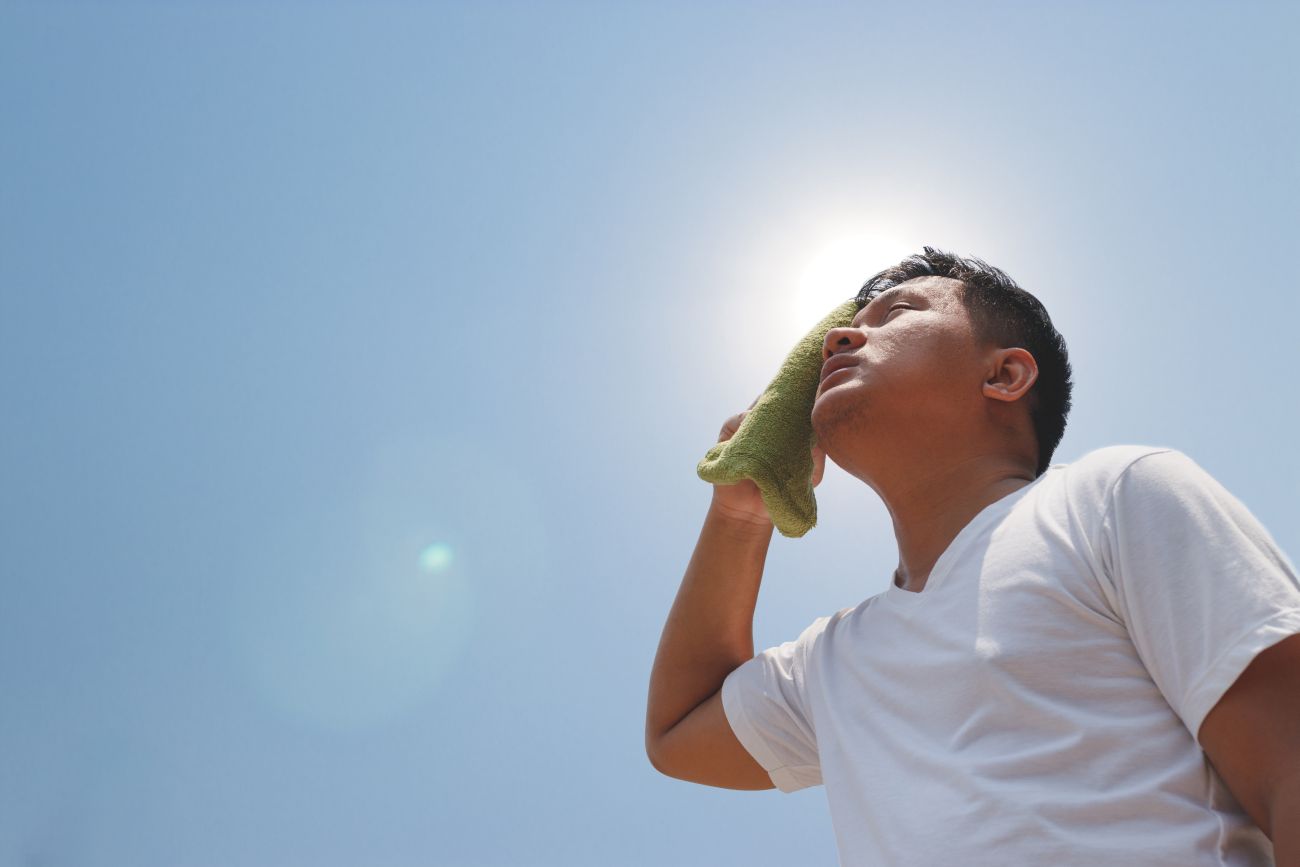When the weather is gorgeous and the sun is shining, it’s hard to imagine that those factors could make you sick. Unfortunately, heat stroke is a real problem, especially if you or someone you love is already vulnerable through illness or old age. Too many people underestimate the hot summer weather. As such, they don’t take the necessary precautions to protect themselves against it.
Heat stroke is caused by the body overheating due to either hot temperatures or excessive exertion in warm environments. Typically, early stages of it can be remedied by simply moving the person into the shade and cooling them down by offering cold drinks and applying ice or cool water to the skin.
In more advanced stages, going to the hospital is the best course of action. Without quick and decisive action, severe heat stroke can be fatal.

Signs and Symptoms of a Heat Stroke
There are multiple signs of heat stroke. Plus, not everyone will have the same symptoms every time. It all depends on what you’re doing and how long you’ve been exposed to the heat.
The main sign of heat stroke is elevated body temperature. It can be hard to identify without a thermometer, but above 104 degrees Fahrenheit is definitely moving into stroke territory.
Many people feel confused, agitated, or delirious in the early stages of heat stroke. If young children have heat stroke, they often become extremely sleepy. This altered mental state can also result in slurred speech or even seizures.
Another sign of heat stroke is if you suddenly stop sweating. Most people believe that the amount that we sweat directly correlates with our body temperature. So, if they stop sweating, they may believe that they have cooled down. In fact, in cases of this stroke, if you stop sweating, it means your body has heated to an unsafe temperature. People who have heat stroke typically feel hot and dry to the touch.
Other common signs and symptoms include nausea, flushed skin, rapid breathing, and a throbbing headache. This rapid breathing can make people feel anxious, out of control, and dizzy. It can even cause some people to faint.
Heat Stroke Risk Factors
Everyone, no matter their age, size, or constitution, is vulnerable to heat stroke. Some people are just vulnerable after much less sun exposure. The key to avoiding heat stroke is to know your own body and its limitations.
Here are some factors that may put you at a higher risk for this type of stroke.
Age
Age is a risk factor for heat stroke because so much of how we process heat depends on our central nervous system. As we age, our body becomes less able to cope with sudden changes in temperature.
A sudden increase in temperature
If we’re suddenly exposed to extremely high temperatures, our bodies have a much harder time processing the heat. This can happen during a heatwave or if you travel somewhere much warmer than what you’re used to.
In this situation, you can minimize the risk for yourself by gradually acclimatizing your body to the heat and taking it easy for the first few days that you’re exposed.
Medications
Some medications affect our central nervous system, and consequently, our body’s ability to handle high temperatures. Other medications can make it much easier for us to get dehydrated, which can also contribute to cases of heat stroke.
Intense physical activity in hot weather
Engaging in sports or other physical activities like climbing, hiking, or running in hot weather can make us much more vulnerable to heat stroke. Doing these intense physical activities in hot weather puts extra strain on our body, which could mean the difference between feeling hot and developing heat stroke.
Pre-existing health conditions
There are lots of pre-existing health conditions that put people at a higher risk for heat stroke. People who have conditions that affect their heart and lungs are particularly vulnerable.
What to Do If You Think You Have Heat Stroke
If you think you may have heat stroke, it’s important to take action right away. The initial stages of heat illness, which are typically referred to as heat exhaustion rather than heat stroke, are characterized by many of the same symptoms. By the time we exhibit more serious symptoms, like high body temperature, confusion, and dizziness, intervention from medical professionals could be the only way to prevent serious, long-term damage.
If you think you have heat stroke, immediately move yourself to a cooler area, preferably in the shade with air conditioning. Sip some water, but don’t drink it too fast as it could cause vomiting. Apply cool cloths to your body or get yourself into cold water if you can. Whatever you do, don’t go swimming unsupervised. If you’re suffering from heat stroke, you may lose consciousness in the water and drown.
If you get into the shade and apply cool cloths to your body, and are still exhibiting heat stroke symptoms more than an hour later, you may need to seek medical attention.
How to Prevent Heat Stroke
There are lots of things that you can do to prevent heat stroke while still enjoying the beautiful summer weather. Whenever you go outside, make sure to dress in light, loose-fitting clothing that allows your body to sweat and cool itself down. Plus, avoid sunburn by applying sunscreen with the proper SPF.
Once you’re outside, take regular breaks from the sun by stepping into the shade or back indoors. Drink plenty of water and make sure you’re hydrated at all times.
Conclusion
Heat stroke can affect anyone, at any time. In order to protect yourself and others, make sure you know the symptoms, as well as the actions that will limit damage from the sun.
If you take all the necessary precautions, you’ll be able to enjoy the beautiful summer weather and soak up plenty of vitamin D without incident.


